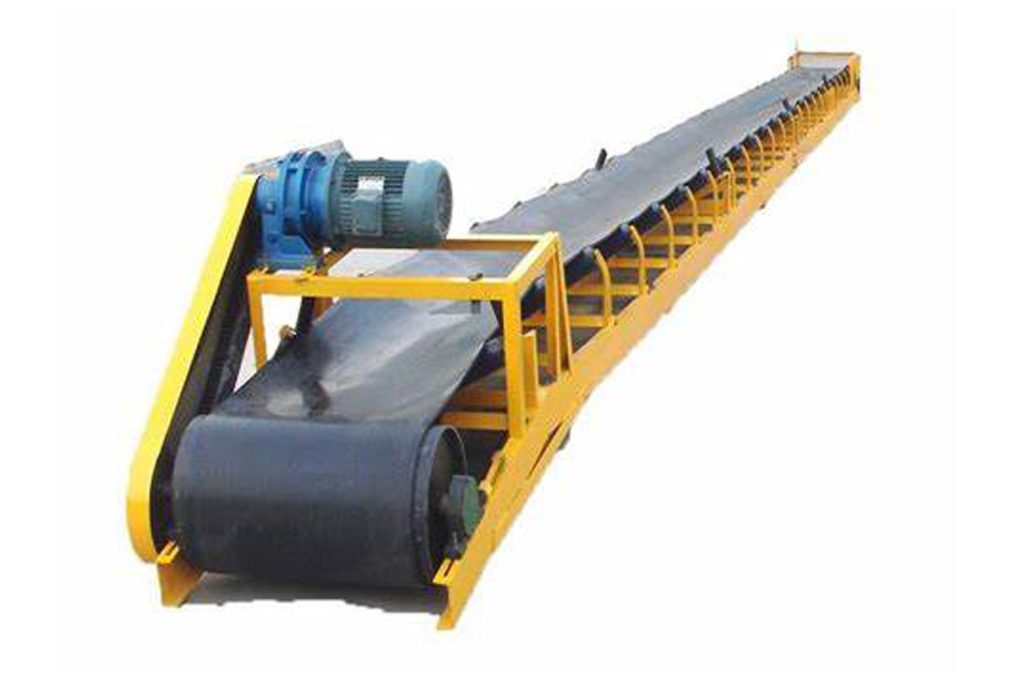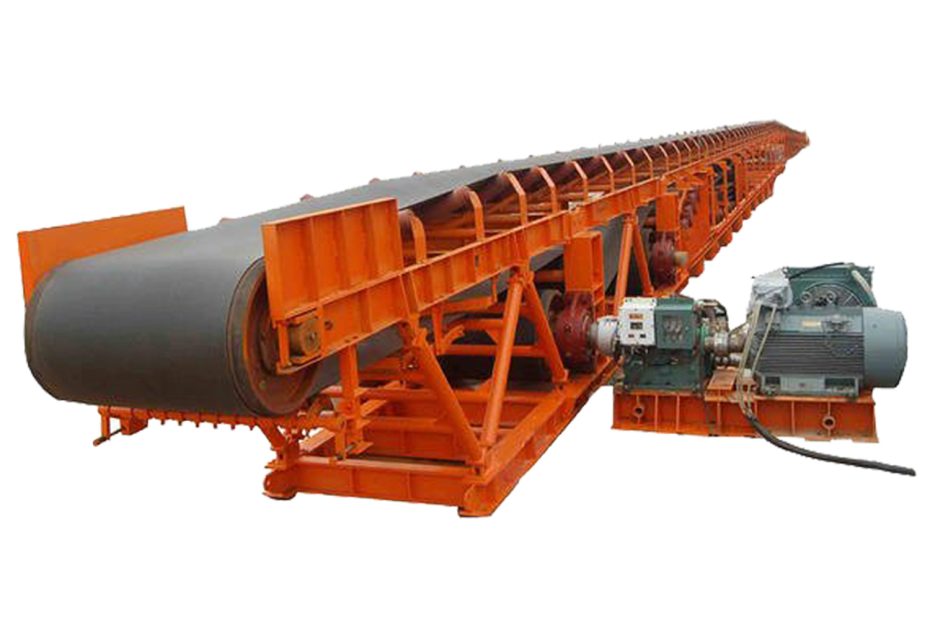Belt conveyor is a continuous conveying equipment that uses flexible tape as material carrying part and traction part. According to the principle of friction, the transmission roller drives the belt to transport the material to the required place. The belt winds around the driving roller at the head and the redirecting roller at the tail, forming a stepless link belt.
The upper and lower belt sections are supported on the rollers, and the tensioning device gives the belt the tension required for normal operation. When working, the active roller drives the belt to run through the friction between it and the belt, and the material moves on the belt together with the belt.
The belt conveyor is used in grain, oil and feed processing plants to convey bulk materials and packages in the horizontal direction or in a inclined direction with a small inclination angle.
Continuous loading and unloading conveying machinery for loading materials.The belt conveyor has a large conveying capacity and a long conveying distance. It can feed and unload materials at multiple points without damaging the conveyed materials. It works stably and reliably with low noise.
Top 4 Advantages of belt conveyors
- Large conveying capacity: The belt conveyor can adapt to conveying various materials, and the conveying capacity is large, which is several times more than the traditional manual conveying method.
- Reliable operation: The belt conveyor adopts a modular design, the equipment is reliable in operation, and the maintenance is simple, which reduces maintenance costs and downtime.
- Small footprint: The belt conveyor has a compact structure and a small footprint, which reduces the footprint of the layout in the factory.
- Low energy consumption: The belt conveyor adopts energy equipment such as motors, reducers, and hydraulic transmissions, and the energy consumption is low during operation, which is conducive to environmental protection.

Disadvantages of belt conveyors:
- High initial investment: The equipment price of the belt conveyor is relatively high, which increases the initial investment of the enterprise.
- High maintenance cost: Due to the relatively complex equipment structure of the belt conveyor, equipment failure and maintenance costs are relatively high.
- Requirements on the quality of materials: The belt conveyor system has certain requirements on the quality of the conveyed materials, and cannot convey wet, viscous, and easily clogged materials.
Conclusion
Belt conveyor is a kind of high-efficiency and energy-saving material conveying equipment, which has reliable characteristics, can realize efficient material conveying, and is widely used.
